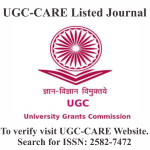ARTIFICIAL INTELLIGENCE, LEGAL PERSONHOOD AND INTELLECTUAL PROPERTY RIGHTS: NAVIGATING THE NEW FRONTIER OF CREATION
DOI:
https://doi.org/10.29121/shodhkosh.v5.i6.2024.5993Keywords:
Ai, Legal Personhood, Intellectual Property Rights, Ai-Generated Content, Legal FrameworkAbstract [English]
Artificial intelligence and its implications are reshaping traditional legal contexts - especially in the context of intellectual property rights (IPRs) and the emerging debate on legal personhood. Now that machines are capable of self-generation, invention and authorship, issues of ownership, liability, and legal personhood beg to be answered. This article examines the shifting terrain which AI-generated content is now creating for human-based IPR regimes. It explores the possibility that legal personhood for AIs offers a workable means of attributing rights and responsibilities or an incoherent one that challenges the agency and ethical requirements of the law. Through a comparison of laws, analysis of technology, and analysis of policy, the research seeks to engage penetratingly with discussions about the interplay of innovation and regulation in this novel space of creation. The results are intended to inform future legal reforms, and set a framework for fair, accountable, and innovative AI in the future.
References
Abbott, R. (2021). The Reasonable Robot: Artificial Intelligence and the Law. Cambridge University Press. DOI: https://doi.org/10.1017/9781108631761
Abnett, K. (2021). EU lawmakers call for 'electronic personhood' for AI. Reuters.
Biddle, J. B. (2021). Artificial Intelligence and Legal Personality: Reconciling Jurisprudence and Technology. AI & Society, 36(4), 1011–1020. DOI: https://doi.org/10.1007/s00146-020-01122-8
Casey, B., Farhangi, A., & Vogl, R. (2021). Rethinking Explainable Machines: The GDPR’s ‘Right to Explanation’ Debate and the Rise of Algorithmic Audits in Enterprise. Berkeley Technology Law Journal, 36(1), 101–163.
Chalmers, D., & Zelada, E. (2021). The Ontological Status of Artificial Intelligence: Legal Personhood or Legal Tool? Philosophy & Technology, 34, 431–449.
Gervais, D. (2021). The Machine as Author. Iowa Law Review, 105(5), 2053–2085.
Gerstner, A. (2021). Intellectual Property Rights for AI-generated Content: Challenges and Policy Options. European Intellectual Property Review, 43(2), 69–78.
Hristov, K. (2021). Artificial Intelligence and the Future of Patent Law. Computer Law & Security Review, 41, 105539. https://doi.org/10.1016/j.clsr.2021.105539 DOI: https://doi.org/10.1016/j.clsr.2021.105539
Jelinek, J. (2021). Who Owns AI-Generated Art? Copyright, Creativity, and Authorship in the Age of Machines. Journal of Intellectual Property Law & Practice, 16(7), 604–612.
McLaughlin, M. (2021). Algorithmic Authors: Reassessing Copyright Protection for AI-Generated Works. Vanderbilt Journal of Entertainment and Technology Law, 23(3), 527–558.
McStay, A. (2021). Emotional AI, Personhood, and Rights: A Challenge for Legal Frameworks. Big Data & Society, 8(2), 1–9. https://doi.org/10.1177/20539517211031317
Montgomery, J. (2021). Machines Without Minds: Legal Personhood and Liability in Artificial Intelligence. Law, Innovation and Technology, 13(1), 1–27.
Sánchez-Ruiz, A. (2021). Regulating Artificial Creativity: The Legal Status of AI as Inventor and Author. European Journal of Risk Regulation, 12(3), 521–535. https://doi.org/10.1017/err.2021.32 DOI: https://doi.org/10.1017/err.2021.32
Smith, A. M. (2021). Artificial Intelligence and the Shifting Boundaries of Intellectual Property. Harvard Journal of Law & Technology, 34(2), 389–435.
WIPO. (2021). WIPO Conversation on Intellectual Property and Artificial Intelligence: Summary of Issues. World Intellectual Property Organization. https://www.wipo.int/meetings/en/details.jsp?meeting_id=56053
Downloads
Published
How to Cite
Issue
Section
License
Copyright (c) 2024 Sahil Lal, Bhupinder Singh

This work is licensed under a Creative Commons Attribution 4.0 International License.
With the licence CC-BY, authors retain the copyright, allowing anyone to download, reuse, re-print, modify, distribute, and/or copy their contribution. The work must be properly attributed to its author.
It is not necessary to ask for further permission from the author or journal board.
This journal provides immediate open access to its content on the principle that making research freely available to the public supports a greater global exchange of knowledge.




















